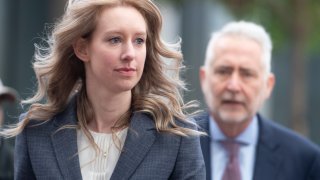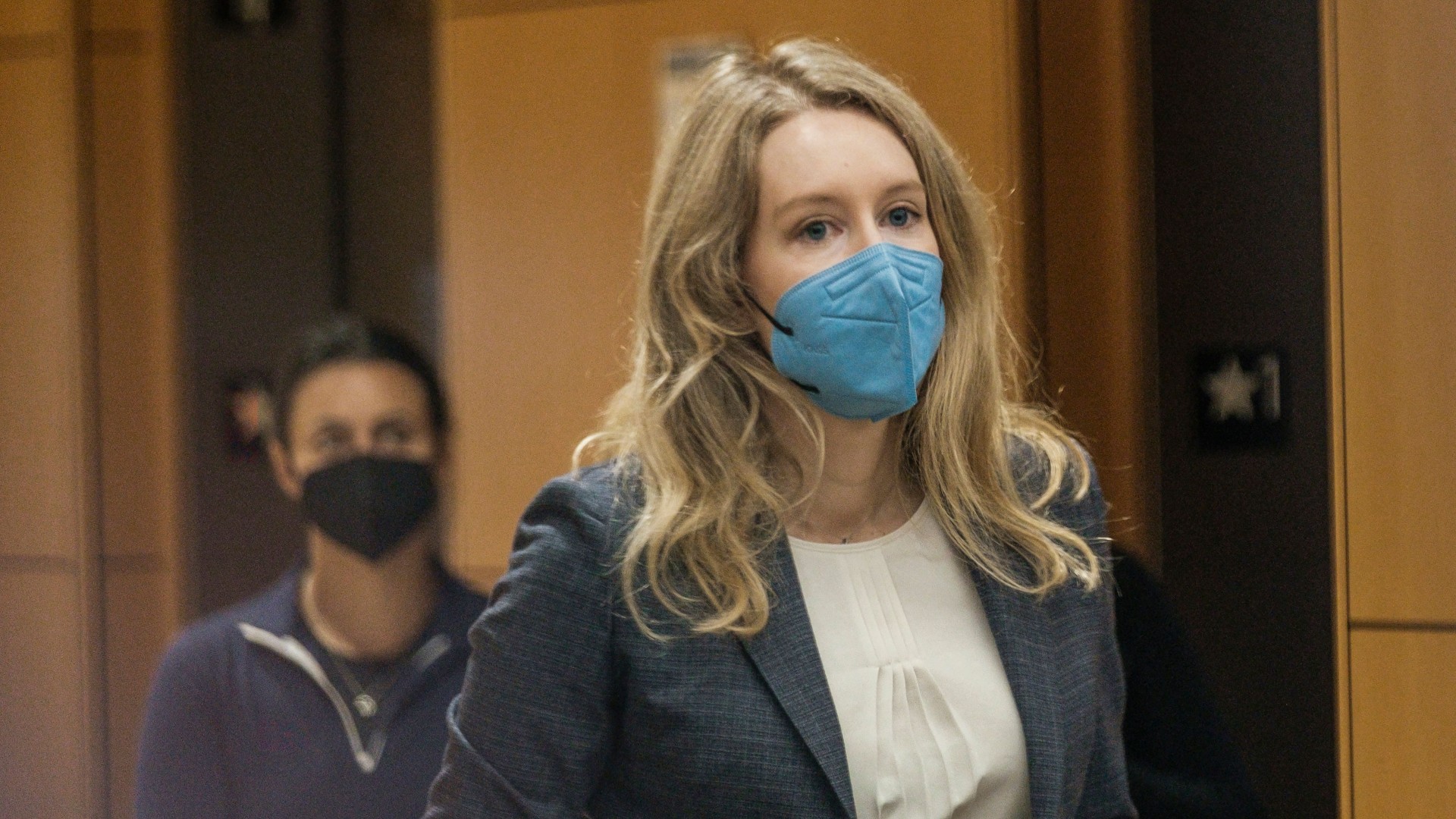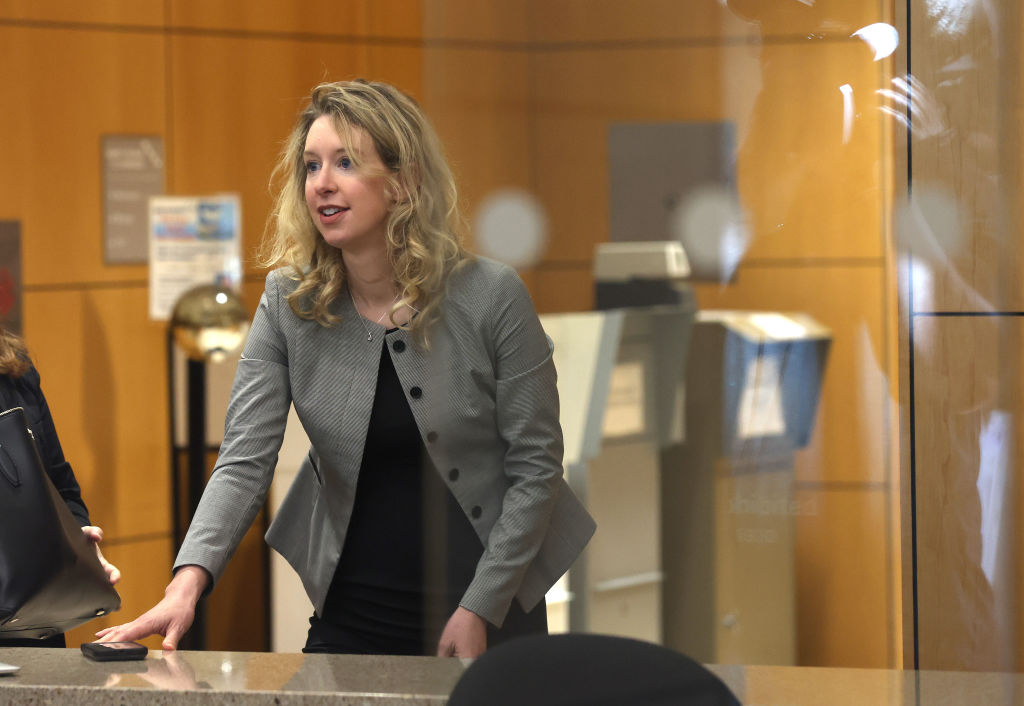
Federal prosecutors filed their responses Wednesday to multiple motions by convicted Theranos founder Elizabeth Holmes for a new trial.
Earlier this month, Holmes, who was convicted by a jury of four counts of defrauding investors in the now-defunct blood testing company, argued that she should receive a new trial based on "newly discovered evidence."
According to Holmes, that "evidence" included a summer visit to her home by key prosecution witness and former Theranos lab director Adam Rosendorff, arguments made by the government during the trial of Holmes' business partner and former lover Ramesh "Sunny" Balwani, and documents related to the loss of the database on which Theranos stored information about its patients.
Calling the defense motions a "ploy to delay her inevitable sentencing" on Oct. 17, Assistant U.S. Attorney Kelly Volkar urged U.S. District Judge Edward Davila to deny the motions outright, without the evidentiary hearing Holmes has requested. Such a hearing would entail witness testimony and likely require the sentencing to be pushed back, even if the motions are ultimately denied.
Get a weekly recap of the latest San Francisco Bay Area housing news. Sign up for NBC Bay Area’s Housing Deconstructed newsletter.
Holmes' motion regarding Rosendorff recounted an unusual tale of the former lab director attempting to meet with Holmes in August of this year, months after her trial ended in January.
The motion asserted that Rosendorff left a voicemail message for Holmes' defense counsel, asking for a personal meeting with Holmes. Just over an hour later, Rosendorff drove to Holmes' house, where he spoke with her partner, William Evans.
Rosendorff, who testified for six days during Holmes' trial, allegedly told Evans that the prosecution had made everything appear worse than it was at Theranos and that he was having trouble sleeping because of the testimony he had given.
A conversation with Holmes would be "healing" for both of them, Rosendorff said, according to the defense papers.
The prosecution's response included a sworn declaration by Rosendorff that he answered all the questions put to him "truthfully" at trial, that he stood by his testimony, and that he had "no reason to believe that the government misrepresented or otherwise created a misimpression about" Holmes' conduct at Theranos.
The prosecution also argued that Rosendorff's post-trial sentiments would not make a difference in any new trial.
In another motion, Holmes relied on the prosecution's closing argument during the Balwani trial to the effect that Balwani played a key role at Theranos and had "influence" over Holmes due to his age and experience.
That argument, Holmes claims, directly contradicts the prosecution's position in her trial, which was that as CEO of the company, she called the shots.
The prosecution argued in its response that the power dynamic and 19-year age difference between Holmes and Balwani are not "new" evidence and pointed to Holmes' own trial testimony laying the blame for Theranos' financial implosion on Balwani.
In a third motion, Holmes again raised the question of how the Theranos laboratory database came to be lost, a much-litigated issue before and during her and Balwani's trials, asking Davila for a new trial during which she would argue that the database of patient information would have shown a jury that the vast majority of patients were not harmed by faulty blood test results.
The prosecution argued that Holmes had the opportunity to raise that defense in her trial but elected not to do so, partly because of uncertainty as to whether the database would have helped or hurt her case.
All of the motions, the prosecution argued, are untimely, as Davila has already heard and denied Holmes' post-trial motion for an acquittal.
The motions are scheduled to be argued on Oct. 3.



